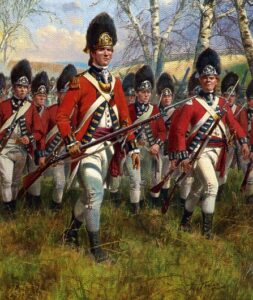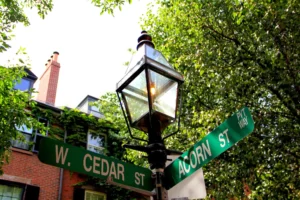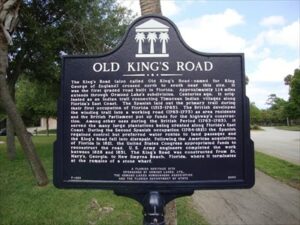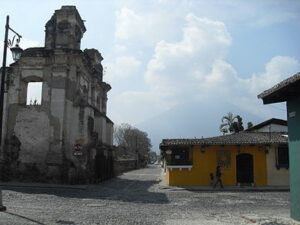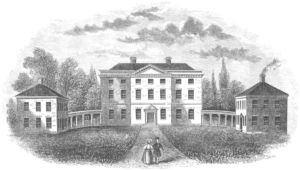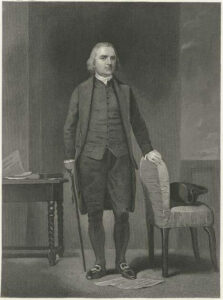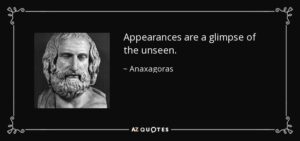Americanism Redux
June 29, your today, on the journey to the American Founding, 250 years ago, in 1773
A second thought? Do I give it a second thought? Do those things that just happen to me right now, the things that will define the 24-hour today, do I really know they’ll last beyond today?
It depends on the things, on what they actually are.
That’s the truth 250 years ago today and that’s the truth 250 minutes ago of your today.
************************************************************************************************************
Can you sleep when you know today’s defining moment is a problem waiting in tomorrow? That’s the challenge on this today, 250 years ago, for Benjamin Bernard. He’s a captain in a British military unit, the 23rd Royal Welch Fusiliers regiment, and he’s still adjusting to serving in a new place, New York City. He’s been here less than a month after transferring with his unit from England to America. Today’s orders make for tonight’s thoughts because of tomorrow’s deed: he is supposed to lead out a detachment of the unit and conduct a practice drill. Not a big deal normally but tomorrow’s not normal–mob violence might occur because bad feelings swirl in the air and ill-will runs above the ground. It gets worse in the way only a boss can make true–his own commander will be observing the drill and rendering judgment of Bernard’s leadership. It’s a long night tonight with Bernard in bed and worst-case scenarios whispering into his ears.
(23rd Royal Welch Fusiliers, Bernard’s unit)
Today, 250 years ago, a man wonders if he should give it a try. Can I do it? There’s a new job available in the colonial capital of Massachusetts. What’s it require? Showing up every day, a steady hand, a willingness to do the work no matter the weather. Oh, the whale oil too, don’t forget the handling, lifting up, and pouring out of whale oil into a container seven feet off the ground and then setting it alight. What’s it offer to him? A wage, for one thing and, honestly, a sense of doing something first for the townspeople, making life better, working with a device new to the people he knows. The man thinks yes, let’s do it, a lamplighter he will be, seizing an opportunity created from today’s decision by a Boston citizens’ committee—led by John Hancock and called the Lamp Department—to install 300 street lamps. It’s an advancement for life in Boston, marked by the light and smoke of burning whale oil.
(newest gadget in town and the lamplighter’s responsibility)
Today, 250 years ago, the end is near and that’s a good thing. It’s the end of a major project, road-making. The road is intended as a lifeline from the St. Marys River to a place called New Smyrna. The King’s Road will be open across a 150-mile stretch of wetlands, swamps, and sandy soil built on top of a Native trail running alongside the Atlantic Ocean and a series of creeks and rivers. The point of the road is success—a much-needed and much-hoped-for boost to the 1500 Greeks, Italians, and Menorcans transported to New Smyrna in East Florida from the Mediterranean Sea eight years ago. Dr. Andrew Turnbull and Sir William Duncan had collaborated to start this settlement. They’ve compelled the new settlers to raise sugarcane, hemp, and indigo. The people hate this life, though Turnbull is obsessed with its continuance. But remember this—the King’s Road is like every road ever opened, allowing a way out as well as a way in.
(marker of the King’s Road)
Today, 250 years ago, the rocks move. Then the trees move. Then the land moves. Side to side, up and down, ripping apart, blowing up, cracking, shaking, pounding, the earth destroying itself in a fit, a tantrum, a death grip. The people of this vibrant city, the capital of Guatemala Kingdom, known as Antigua Guatemala in the New Spain province of Guatemala that stretches hundreds of thousands of acres in modern Central America, feel another shock beneath the ground. It’s the third in the past few months. Today’s, however, is different. The shock comes alive in a blast, an explosion, a 7.5 on a future measure. The city convulses and 600 people die. Hundreds of other people begin a dying misery of disease and starvation. An Order of the Catholic Church, the Mercedarians, reel from the disaster’s effects on their bodies and beliefs. It is the first day driving toward a decision to abandon the capital.
(remnant of an Antigua Guatemala church from 1773 on that day)
Sometimes you just know about the moment that marks a day. Sometimes it takes a while longer.
Also
Josiah Martin is the appointed royal governor of the British colony of North Carolina. Today, 250 years ago, he instructs the upper council of the colony’s legisture to write into the official record a proclamation of British King George III’s from April. In that proclamation the British monarch decreed that the colonies in America will suspend any further land purchases from Native tribes. Governor Martin proceeds from this recorded entry to issue his own decree in the name of the king. Martin declares he is implementing the king’s orders to suspend such transactions in North Carolina. Thus, from the British king in early April to a British colonial governor in late June, an imperial action has gone from palace desk to provincial table.
(the home of Josiah Martin)
Samuel Adams is an elected member of the Massachusetts Assembly, the lower house in the colony’s legislature. Yesterday, 250 years ago, he writes to a colleague in the colonial rights movement that the Assembly has just voted, 82 yes to 12 no, to impeach and remove the royal governor and lieutenant governor of the colony. Because of the recently published letters written by the pair of men, “the People are highly incensed against the two impeached Gentlemen,” writes Adams. In addition, Adams asserts that the Assembly is moving on to “considering the Independency of the Judges; A Matter which every day grows still more serious, and employs much of the Attention of the People without Doors, as well as of the Members” of the Assembly. Adams wishes “Lord Dartmouth & the rest of the Great officers of the Crown could be prevailed upon duly to consider that British Americans cannot long endure a State of Tyranny.”
(Samuel Adams)
Different topic, same story. A single day has a single moment where clarity may be glimpsed. More difficult to see will be how long the glimpse lasts. Every echo ends.
For You Now
Then again, perhaps that’s not the most difficult aspect of it. By definition, a glimpse is like a peek, a few seconds where clouds part and a sight dances into view, fleetingly, butterfly-like and shaped in white, only to recede and disappear. A glimpse is bashful, hurried, and quiet.
The key in a glimpse is whether another will follow, whether the momentary grows into duplication and duplication settles into pattern. You might be able to tell later in the same day, but I doubt it. Another day has to pass, then weeks, and maybe months. Time alone is the stage for turning scattered clouds into gray ceilings.
At the other end of the spectrum, far distant from glimpses, is a stark moment that obliterates everything around it. The impact is undeniable, the rumbling inescapable. Such a moment is intrusive and jealous, allowing nothing else to distract or draw away from the demanded attention and concentration. The question produced next is how to endure, to survive, to regain a footing and to pick the path ahead, under and around and over the wrecked, the fallen, the broken.
Suggestion
In the course of your day, consider this—are we, as Americans, seeing more glimpses or starknesses?
